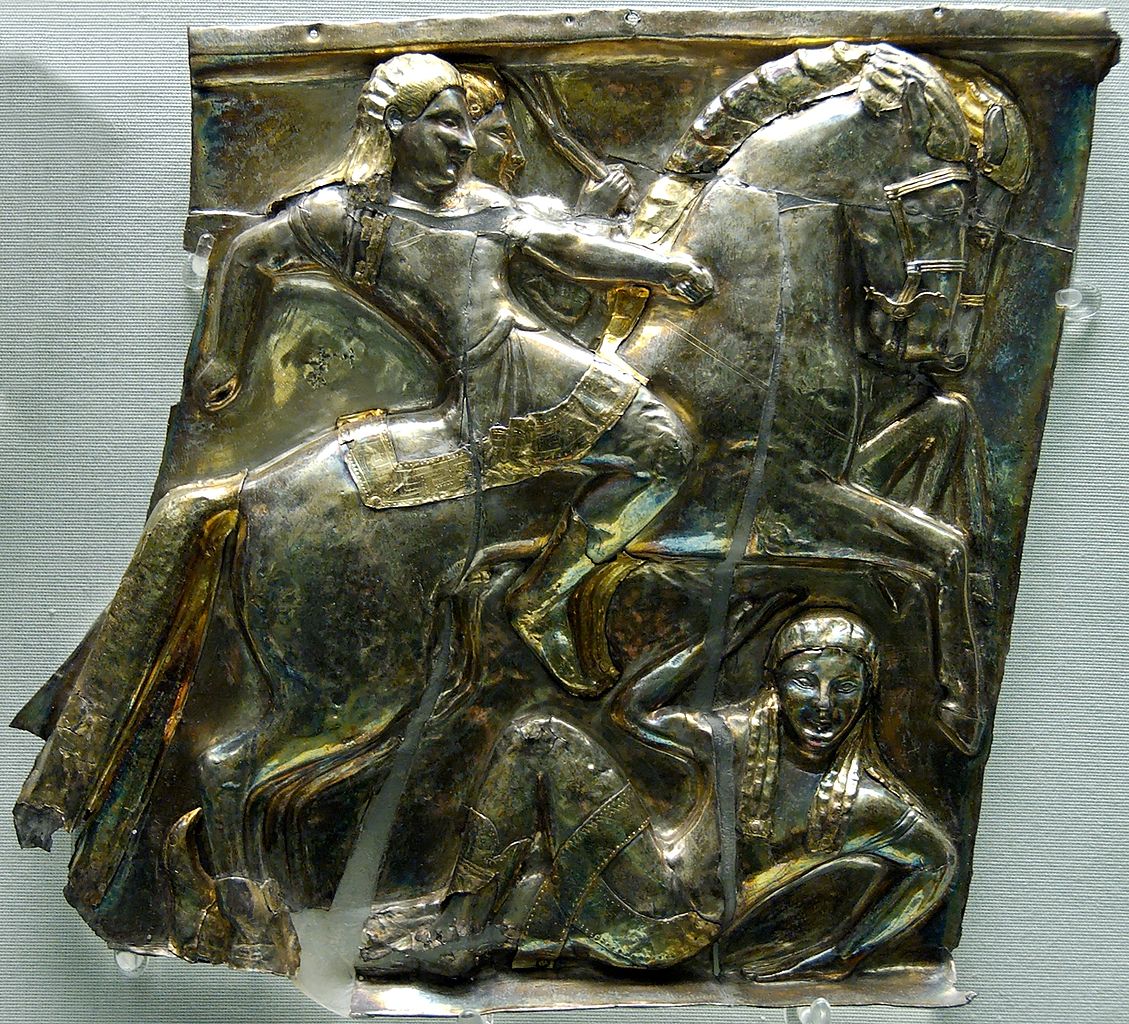
He carries a spear and a hexagonal shield, and looks to be very late in the period or even after the 5th century entirely. Citizen Cavalryman - this man has a decorated round helmet and what looks like scale body armour.Villanovan Cavalryman - another Villanovan crested helmet on display, but otherwise this man is more humbly attired, perhaps with no body armour (hard to tell), and holding a spear in an unnatural, totally vertical position.His shield has twin handle grips, but it is thought that at this date all shields were held by a central grip. The main feature here is the poncho-style armour front and back, a luxury only possible for a very wealthy man, but in the Villanovan period it was the wealthy that provided the cavalry. Villanovan Cavalryman - another man wearing the Villanovan crested helmet, and this time carrying a straight example of the antennae sword.As we have said before, the difficulties of holding two weapons at the same time, let alone using either effectively, make this a pretty unlikely pose, particularly as the man also has to control a horse under him, galloping forward as they all are here. Villanovan Aristocratic Cavalryman - this man certainly does date back to the earlier, Villanovan period, as he wears the classic Villanovan crested helmet and holds a curved version of the antennae sword in his left hand, a spear in his right.He also has greaves and a good shield with twin strap grips (another late period feature), as you might expect of an aristocrat.



Linear-A have also produced a set of infantry for these people, and this is the second and concluding set in the Etruscan range, depicting the wealthy, mounted men in battle. Just as with the Greeks, the Etruscans were essentially a collection of city states which cherished their independence and often fought with each other in local disputes, but on occasion they seemed to have formed temporary leagues to achieve a higher purpose such as to expand their territory or protect their trade routes. The first two centuries of their civilisation are termed the Villanovan Period, but approximately around 700 BCE this gradually changed into the Orientalising Period, when Greek influence became more marked as more Greek colonies appeared further south. The Etruscan civilisation developed in northern Italy and was to be the most important of the Italian peoples until the rise of the Romans several centuries later.


 0 kommentar(er)
0 kommentar(er)
